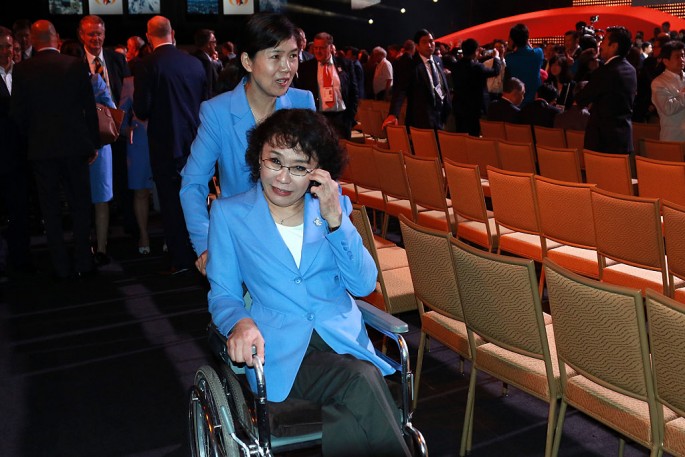Zhang Haidi, who is considered as the Helen Keller of China for championing the rights of the disabled, was inaugurated as the new head of the Rehabilitation International (RI) during the closing ceremony of the 23rd RI World Congress held at Edinburgh, Scotland on Oct. 25-27.
According to a Xinhua report, RI's outgoing president Jan Monsbakken said that the election of Zhang is momentous for the organization and the community of disabled people it serves. In her speech at the congress, Zhang vowed to develop the lives of the world's disabled people, opening for them opportunities for recovery, education and employment.
Also in her promises were the encouragement and support for researches that will focus on recovery science and technologies, special attention to the survival and development of disabled women and children, a special fund for Africa, and a permanent RI awards for contributors to the recovery of the disabled.
RI is a worldwide organization and network that empowers people with disabilities and aims to achieve a more inclusive society for them. It was founded in 1922 and is comprised of people with disabilities, service providers, government agencies, academics, researchers and advocates. It has member organizations in more than 100 countries and in all regions of the world.
Zhang said that to serve the RI as the new head is a great honor for her. With her life and experiences, many believed that she is more than capable for the role.
Zhang is the chairperson of the China Disabled Persons Federation whose mission is to promote the full participation of persons with disabilities in society equally with others.
She is also a member of the National Committee of the Chinese People's Political Consultative Conference and she has used this position to call for the improvement of disabled access to buildings and to campaign for the right of disabled people to drive.
Zhang, who is also a published writer and a translator, was born in September 1955 in Jinan, Shandong and contracted polio as a child. At the age of five she became a paraplegic after undergoing four operations to remove tumors in her spine. She was unable to attend school, but she educated herself to university level and learned several foreign languages including English, Japanese, German and Esperanto.
Then she furthered her education with a Master's Degree in Philosophy from Jilin University and was awarded an honorary doctorate by the University of York in 2013 and by the University of Massachusetts Boston in 2015.



























